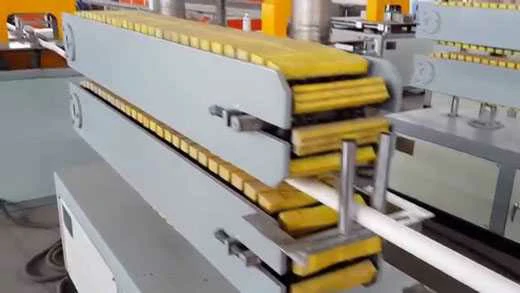How should sewer pipes be soundproofed

“`html
Sewer pipes often carry a significant amount of noise, which can be disruptive to people living or working near them. Soundproofing sewer pipes is therefore essential to minimize the impact of this noise on surrounding areas. In this article, we will explore effective methods for soundproofing sewer pipes, ensuring a quieter and more peaceful environment for everyone.
Understanding the Impact of Sewer Pipe Noise
Before delving into methods of soundproofing sewer pipes, it’s crucial to understand the impact of sewer pipe noise. The flow of wastewater and air through sewer pipes generates considerable noise levels, especially in urban environments or densely populated areas. This noise can cause disturbances, impacting the quality of life for nearby residents, workers, and businesses. Additionally, excessive noise from sewer pipes can lead to complaints and potential legal issues, making soundproofing measures a priority for municipalities and property owners.
Insulation Materials and Techniques
One effective method for soundproofing sewer pipes is the use of insulation materials and techniques. By wrapping the pipes with sound-absorbing materials, such as specialized acoustic blankets or foam insulation, the transmission of noise can be significantly reduced. In addition, applying a dense, soundproofing coating to the exterior of the pipes can further dampen noise emissions. It’s important to select insulation materials that are durable, weather-resistant, and specifically designed for use in sewer systems to ensure long-lasting effectiveness.
Vibration Dampening Systems
Vibrations generated by the flow of water and waste within sewer pipes can contribute to the overall noise levels. Implementing vibration dampening systems can help mitigate this issue. Installing rubber or neoprene pads at key points along the pipeline, such as at supports or junctions, can effectively reduce the transmission of vibrations and, consequently, the noise produced. Additionally, incorporating flexible couplings and expansion joints can absorb movement and vibrations, limiting their impact on the surrounding environment.
Strategic Pipe Routing and Support
The way in which sewer pipes are routed and supported can have a significant impact on the noise they produce. Strategic pipe routing, which minimizes abrupt changes in direction and utilizes gradual slopes, can help maintain a steady flow and reduce turbulence, thereby decreasing noise levels. Proper support and securing of the pipes using resilient materials can prevent unnecessary movement and rattling, further reducing the generation of noise. By optimizing the layout and support of sewer pipes, a quieter and more stable system can be achieved.
Maintenance and Monitoring for Long-Term Effectiveness
Once soundproofing measures have been implemented, regular maintenance and monitoring are crucial to ensure their long-term effectiveness. Inspecting insulation materials for damage, replacing worn vibration dampening components, and verifying the integrity of pipe support systems are essential tasks to maintain the desired noise reduction levels. Additionally, periodic noise level measurements can help identify any emerging issues and allow for adjustments to be made proactively. By prioritizing ongoing maintenance and monitoring, the soundproofing of sewer pipes can continue to provide a quieter environment for the community.
In conclusion, soundproofing sewer pipes is essential for mitigating the impact of noise on surrounding areas. Through the use of insulation materials, vibration dampening systems, strategic pipe routing, and ongoing maintenance, the noise generated by sewer pipes can be significantly reduced. By implementing these methods, municipalities and property owners can create a more peaceful and harmonious environment for residents, workers, and businesses alike.
“`
.webp)



